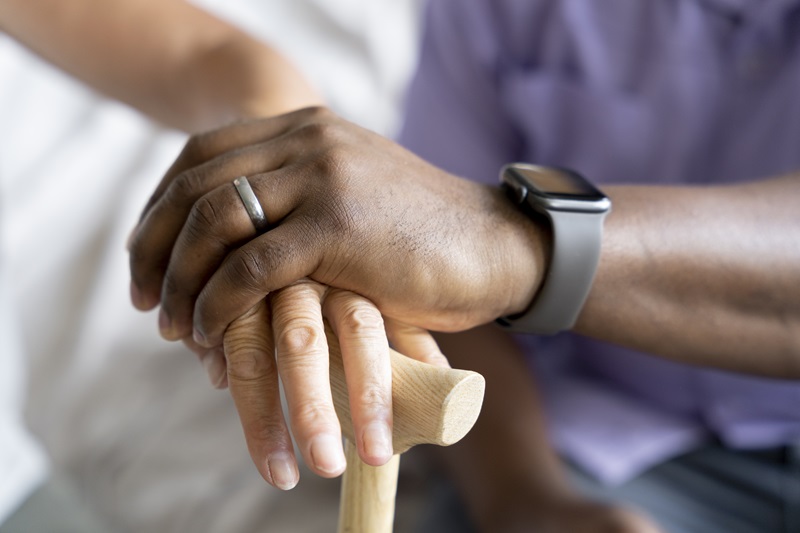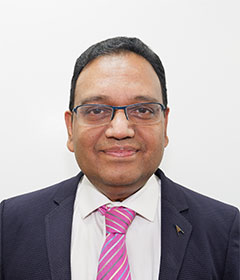
Parkinson’s disease is a neurodegenerative disorder that affects the brain and is characterized by symptoms such as tremors, stiffness, and bradykinesia. Various treatment options are available to manage these symptoms, including medical and surgical interventions.
-
Pharmacotherapy: is the primary treatment strategy for Parkinson’s disease. These medications aim to increase the level of dopamine in the brain by either enhancing its synthesis or inhibiting its breakdown. The drugs commonly prescribed for Parkinson’s disease include levodopa, dopamine agonists, monoamine oxidase-B inhibitors, catechol-O-methyltransferase inhibitors, and anticholinergics. While these medications are effective in reducing the symptoms of Parkinson’s disease, they may also cause side effects, such as dyskinesia, nausea, and hallucinations. -
Surgery: is an alternative option for patients who have severe or disabling symptoms that are not adequately controlled by medications. Deep brain stimulation (DBS) is a standard surgical procedure used to treat Parkinson’s disease. During DBS surgery, electrodes are implanted into specific regions of the brain that control motor function. These electrodes are then connected to a neurostimulator, which emits electrical impulses to modulate the abnormal brain activity that causes Parkinson’s symptoms. DBS can reduce tremors, rigidity, bradykinesia, and dyskinesia, but it may also lead to complications, such as infection, bleeding, stroke, or device malfunction. DBS patients require ongoing follow-up care and programming by a neurologist or neurosurgeon.
The management of tremors in individuals with Parkinson’s disease has been revolutionized by advanced treatments such as MRI-guided focused ultrasound (MRgFUS). This minimally invasive procedure employs an MRI to direct focused ultrasound waves to the precise location in the brain where the tremors originate. The high-intensity ultrasound waves generate thermal energy that burns the regions responsible for the tremors, thereby reducing symptoms in affected patients. Notably, the Royal Care Institute of Neurosciences, a distinguished neuroscience hospital in India, is the first in the country to offer this innovative treatment, which promises to benefit Parkinson’s disease patients in Coimbatore and beyond.
Benefits of MRI Guided Focused Ultrasound (MRgFUS) treatment at Coimbatore, Tamilnadu
Incisionless Treatment with below benefits:
- Little to no risk of any infections
- No invasive holes or implants
- Minimal or no hospitalization required.
- No General Anesthesia is required.
- Personalized treatment
Immediate and Significant Results:
- Immediate tremor improvement post-procedure
- Improved quality of life
- Tremor stably maintained at three years
Immediate MRgFUS Results: We can confirm that your tremors are improve in real-time during the procedure. We will talk with you to ensure you are comfortable during the procedure. We may ask you to move in specific ways or write or draw to see how your tremor responds and treat it better.
Numerous other therapeutic interventions are available to enhance patients’ functional abilities, communication skills, coping strategies, and mental health. These interventions encompass physical therapy, occupational therapy, speech therapy, and psychological treatment, each serving a specific purpose. Physical therapy improves patients’ physical functioning through exercises, stretching, balance, and gait training. In contrast, occupational treatment enhances patients’ everyday living activities, adaptive equipment, and environmental modifications. Speech therapy addresses communication impairments related to voice disorders, swallowing difficulties, and cognitive deficits. Finally, psychological treatment aims to alleviate depression, anxiety, and stress by providing emotional support and coping strategies.
Alternative treatments, such as ayurveda, yoga, meditation, acupuncture, massage, herbal remedies, and dietary supplements, are frequently promoted as having the potential to improve Parkinson’s symptoms or overall well-being. However, scientific evidence to support their effectiveness or safety is limited. In addition, some of these treatments may have adverse interactions with prescribed medications or cause unfavorable reactions. Therefore, patients must consult with their physicians before exploring any alternative therapies. The optimal cure for Parkinson’s disease is contingent on each patient’s specific needs and preferences. Patients should engage their physicians in discussions regarding the benefits and risks of each treatment option to make informed decisions. Furthermore, a healthy lifestyle with a balanced diet, regular exercise, sufficient sleep, stress reduction, and social support is critical to maintaining well-being.
The Royal Care Institute of Neurosciences, located in Coimbatore, has a proven track record of treating numerous patients with Parkinson’s disease. We take pride in our team of highly skilled neurologists and neurosurgeons, who employ state-of-the-art diagnostics and imaging techniques to provide the best possible care for our patients. Our advanced neurorehabilitation center, cutting-edge neuro operation theatres, and a world-class neuro ICU allow us to deliver comprehensive care to our patients. We have treated numerous patients, and we recommend you go through this Parkinson’s disease patient video https://www.youtube.com/watch?v=szeBlQlf15E. We invite you to contact us at 080623 58667 should you require our services.

